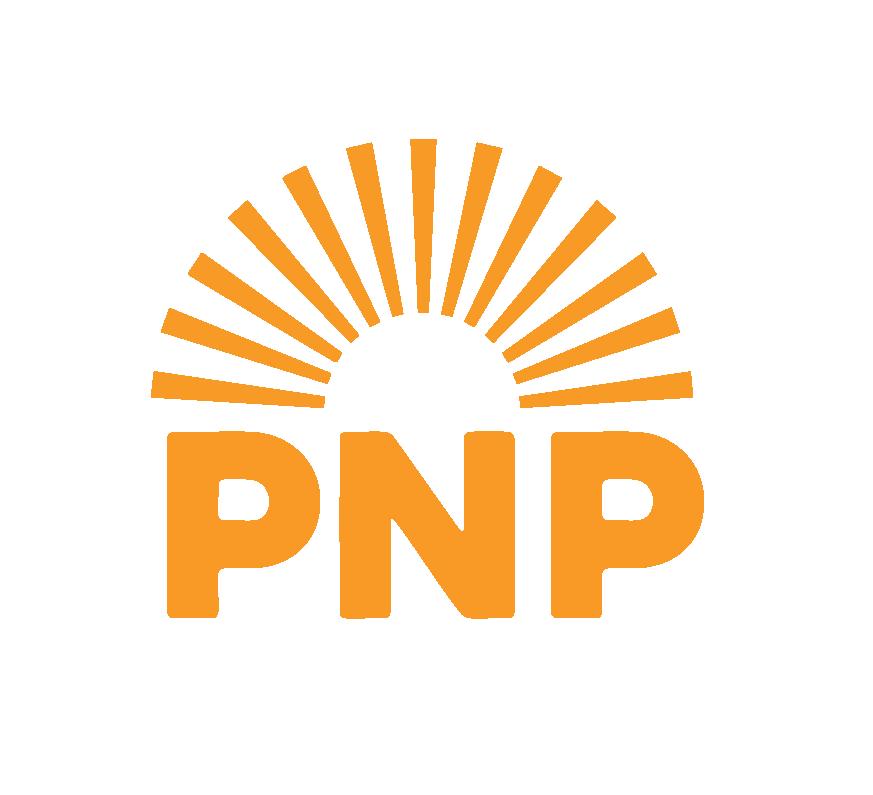




This is more than a manifesto. It is a promise born from love of country.
A vow to uplift every Jamaican with justice, opportunity, and care. To build a nation rooted in dignity, equity, and pride. Because Jamaica, Time Come.
In our determination to build a new Jamaica, we must fight against corruption and restore trust in our Government, institutions and political leadership.
It is for this reason that:
· Every member of the Shadow Cabinet signed the Code of Conduct as requested by the Integrity Commission.
· Once in Government, the People’s National Party is committed to:
Change the Integrity Commission Act (ICA) to allow for the statutory declarations of members of the Executive to be published for public scrutiny. Currently the law only requires the statutory declarations of the Prime Minister and the Leader of the Opposition to be published in the Gazette.
Amending the gag clauses in the ICA to strike a balance between privacy and the public’s right to know.
Corruption reduces trust and diverts resources from the intended purposes, and thereby reduces the investment in roads, water supply systems, education, hospital facilities and other public goods that are needed and demanded by the Jamaica People.
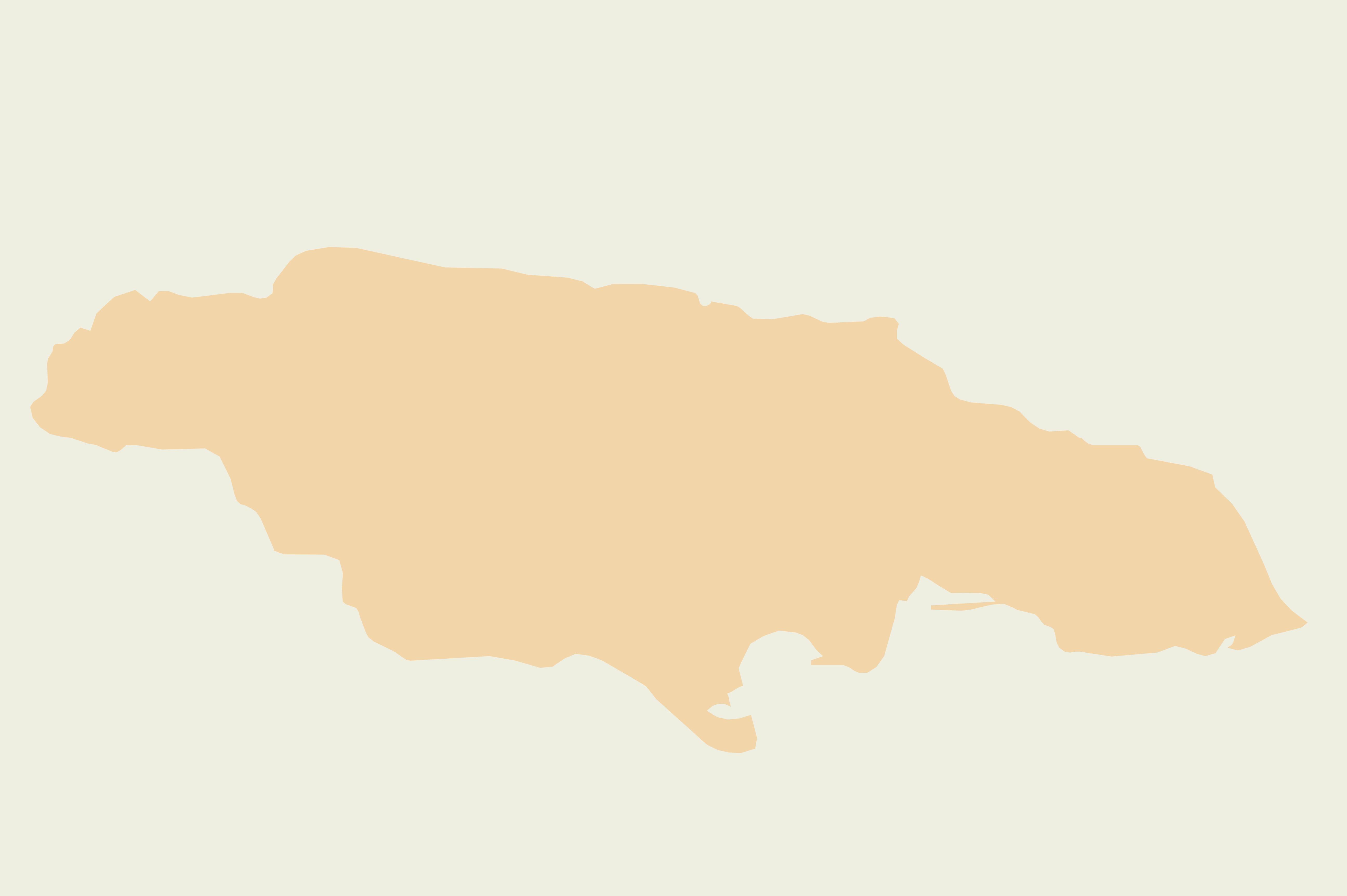

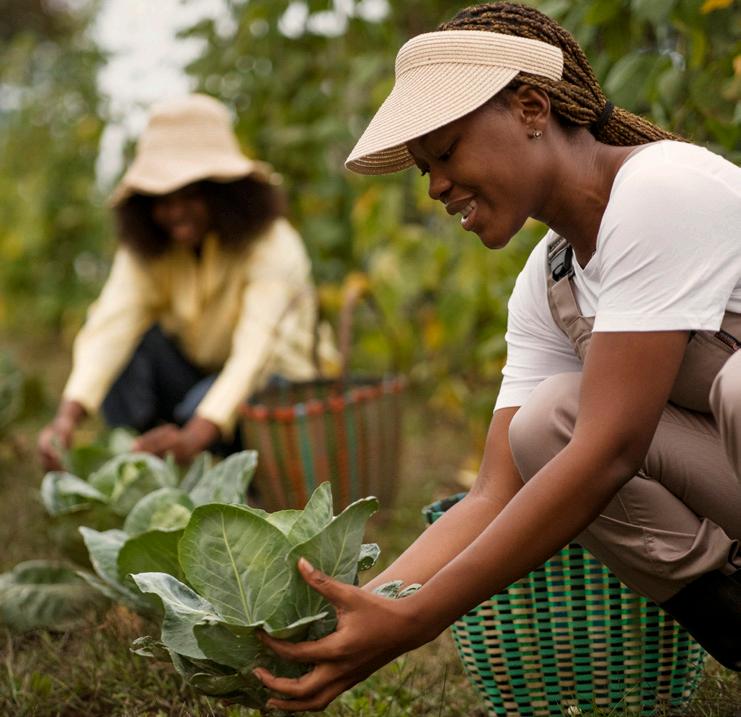
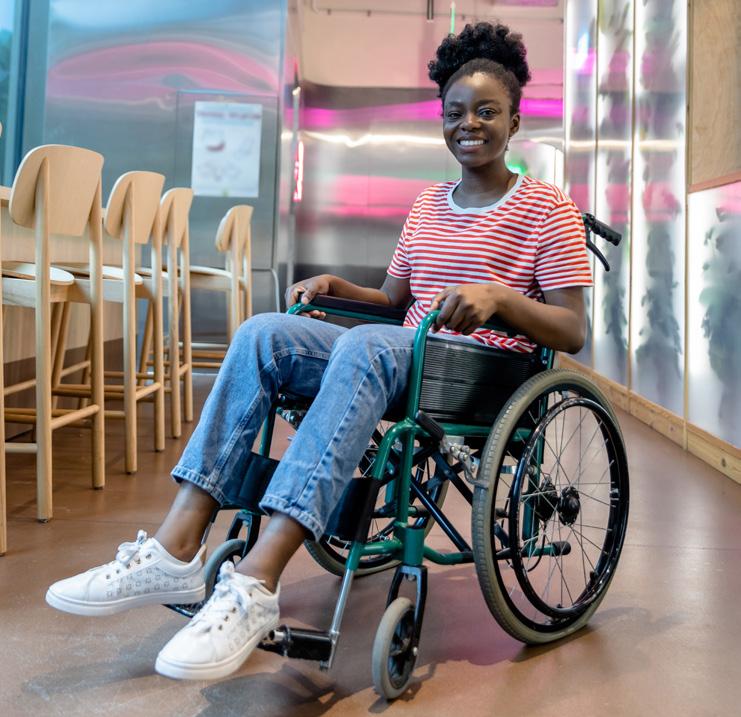


Restoring Trust in Leadership
Message from the Party President
Introduction: The Journey of Love and Transformation
The Current Context
Why the PNP is Ready to Lead Jamaica Now Our Plans and Strategies for a Stronger Nation
Mission Jamaica Love –
Eight Pillars for Building a New Jamaica
Section 1: Justice for All
Constitutional Reform for Sovereignty and Justice
Legal and Legislative Reform
Access to Justice and Services
Section 2: Access to Quality Education
Early Childhood Education
Primary and Secondary Education
Tertiary and Vocational Access
Support for Teachers
Health and Nutrition
Section 3: Modern Infrastructure
Energy: Power for the People
Water and Sustainable Living: Making Every Drop Count
Roads and Transportation: Connecting People, Products, and Places
Broadband and Digital Infrastructure: Bridging the Digital Divide
Section 4: Agriculture and Food Security
Farmers’ Support and Access to Land
Youth in Agriculture and Training
Climate Resilience in Farming
Food Sovereignty and Nutrition Security
Agricultural Investment and Innovation
Section 5: Innovation and Industry
Repositioning for a New Global Economic Reality
Jamaica 4.0: Our Fourth Industrial Vision
Industrial Development and Logistics Integration
Building a Strong Country Brand and Investment Climate
Transforming MSMEs and the Informal Economy
Building a Fairer, Stronger, and More Inclusive Tourism Sector
Culture and the Creative Economy
Sports Development
Tourism Reform
Labour Reform
Section 6: Care for the Vulnerable and Health Services
Health and Wellness for All
Social Protection and Family Support Services
Elder Care and Disability Inclusion
Gender-Based Violence
Section 7: Accountability in Governance
Strengthening Democracy and Oversight
Constitutional Reform for Sovereignty and Justice
Government Efficiency and Service Delivery
Local Government Reform
Foreign Policy and Regional Affairs
Information and Public Communication
Section 8: Land, Housing and Ownership
The National Housing Trust
Community Renewal and Urban Upgrading Land Ownership
Section 9: Opportunity for Youth
Education and Training for the Future
Jobs, Entrepreneurship, and Digital Access
Creative Expression, Culture, and Sports Care, Mental Health, and Protection
Section 10: Violence Prevention and Safer Communities
Violence as a Public Health Issue
Policing for Community Trust
Social Investment and Violence Prevention
Technology and Intelligence
Balanced Enforcement and Legal Reform
Improving Welfare and Protection for Law Enforcement
Section 11: Environmental Resilience
Mainstream Environmental Protection Across Government
Environmental Governance and Legal Reform
Resilience Through Waste and Water Management
Green Financing and Nature-Based Development




people is very different. Wages cannot stretch, prices rise daily, basic public services are substandard, young people have too few opportunities, and communities across our country are trapped in poverty, crime, and neglect. Stability in the public finances without quality of life for the people is not prosperity, and is why the people are clamouring for change.
We understand both the progress and the pain, because we have walked this road with you. We were the architects of Jamaica’s celebrated macroeconomic reforms, from the key elements of the Fiscal Responsibility Framework to the modernization of the revenue system, bringing the nation’s debt under control and allowing a regime of inflation

Prior to that our Party initiated the fundamental social reforms that decolonized Jamaican society, and created lasting programmes like PATH for our most vulnerable, the National Health Fund to support affordable healthcare, and JADEP for our seniors. We built institutions like the NHT and the JUTC and modern infrastructure like the major highways, expanded seaports and airports, and we enabled investments in modern telecommunications and the transition to renewable energy through Wigton Wind Farm and the large solar projects.
But the benefits of national development have not reached far enough. Interior roads in every parish are in deplorable condition. Many communities do not have access to water in their homes. Urban blight and decay plague our cities, while rural Jamaica has been left behind. Farm roads are impassable, irrigation is inadequate and outdated, and farmers lack the tools, machinery and support systems to produce and prosper.
This manifesto is our plan for a new chapter built on our vision - JAMAICA LOVE. It stands on ten pillars, Justice for All, Access to Quality Education, Modern Infrastructure, Agriculture and Food Security, Innovation and Industry, Care for the Vulnerable, Accountability in Governance, Land and
Housing, Opportunity for Youth, Violence Prevention, and Environmental Resilience.
These pillars are a compass. They will guide us to invest in people, close the gaps between uptown and downtown, between tourism zones and rural parishes, between the wellconnected few who thrive while the majority feel neglected and dejected. We will protect economic stability and leverage it into inclusive and sustainable growth, creating a new era of opportunities for those who are now excluded from prosperity while tackling corruption and the abuse of power in governance.
Jamaica, Time Come to lift our country higher and build a future that belongs to all of us. Let us take this journey together.

Every Jamaican lives between two places. One is where we are now: the struggle, the hardship, the present reality. The other is where we long to be: our ambitions, our hopes, our better future.
Mission Jamaica Love is the journey between those two coordinates.
This manifesto is a declaration of that journey, a call to action, a people’s pledge to Jamaica. It is not just about promises; it is about service for the country over self. It is about building a Jamaica where progress is not a privilege for the few but a right for all; a Jamaica where development is not just a headline but a lived experience.
We believe in a government that fixes the road under your feet and the system above your head. We do not just want to manage hardship; we are here to clear the path, unlock potential, and build futures.
We ask you to join us, not just with your vote but with your voice and your vision. Together, let us rise with one purpose: to love Jamaica through action, to build Jamaica through service.
Although the government speaks of prosperity, the people continue to suffer. More than half of Jamaicans struggle to access adequate food. Many young people migrate after university, not out of adventure, but because they are unable to find employment. The working poor are growing.
Our health system is in crisis. Hospitals are overwhelmed; promises have become bitter pills to swallow. Our education system is under strain; thousands of children are leaving school without mastering basic literacy and numeracy skills. Our farmers are struggling with outdated systems, poor support, and limited access to markets. Corruption is widespread; beaches are being taken away; many Jamaicans live on land they do not own, in homes they had to build themselves.
We live in a country of contrast. Gated wealth sits beside underserved communities. Water, light, safety, and dignity are denied to many, and enjoyed by a few. Women suffer violence. Justice often feels out of reach.
Sixty-three years after independence, we ask ourselves: Where is the hope? Can better really come? The answer is yes, but only with leadership that prioritises the people.
The People’s National Party has always been a movement for transformation.
Born in the fire of the anticolonial struggle, we were the first to fight for universal adult suffrage. We built national
institutions, expanded access to education, and lifted thousands out of poverty.
In the 1970s, we said Better Must Come and we meant it. We delivered free education, land reform, housing solutions, and progressive laws. In the 1990s and 2000s, we stabilised the economy, built modern infrastructure, and created social programmes to protect the vulnerable.
Today, our mission is clear: to deepen democracy, decolonize governance, broaden ownership, and make justice a reality for every Jamaican. We are not offering gimmicks; we are offering a transformation grounded in love, justice, and people power.
This is a covenant; a commitment to act. We are ready to serve, not ourselves, but our country.
We recognise the world is changing; global pressures are growing, but new opportunities are also emerging. As a small island developing state, Jamaica must act boldly and wisely. Every plan we propose must be rooted in local needs and aligned with global possibilities. This manifesto offers not just a critique of what is wrong, but also a roadmap to what is possible - a roadmap to equity, dignity, opportunity, and shared prosperity.
A PNP Government will drive inclusive growth, not growth for headlines, but growth that puts food on the table and power in the people’s hands.
We will move beyond low-wage jobs into high-value industries. We will invest in innovation, education, and infrastructure. We will empower small businesses, support youth, and ensure that no corner of Jamaica is left behind. We will build a Jamaica that is resilient, just, and ready for the future.
The People’s National Party’s Manifesto is rooted in love for country and a commitment to service over self. Each pillar reflects our focus on building a better life for all Jamaicans through justice, opportunity, equity, and progress.
J L O V E A M A I C A ustice and pportunity iolence nvironmental ccess odern griculture nnovation are ccountability
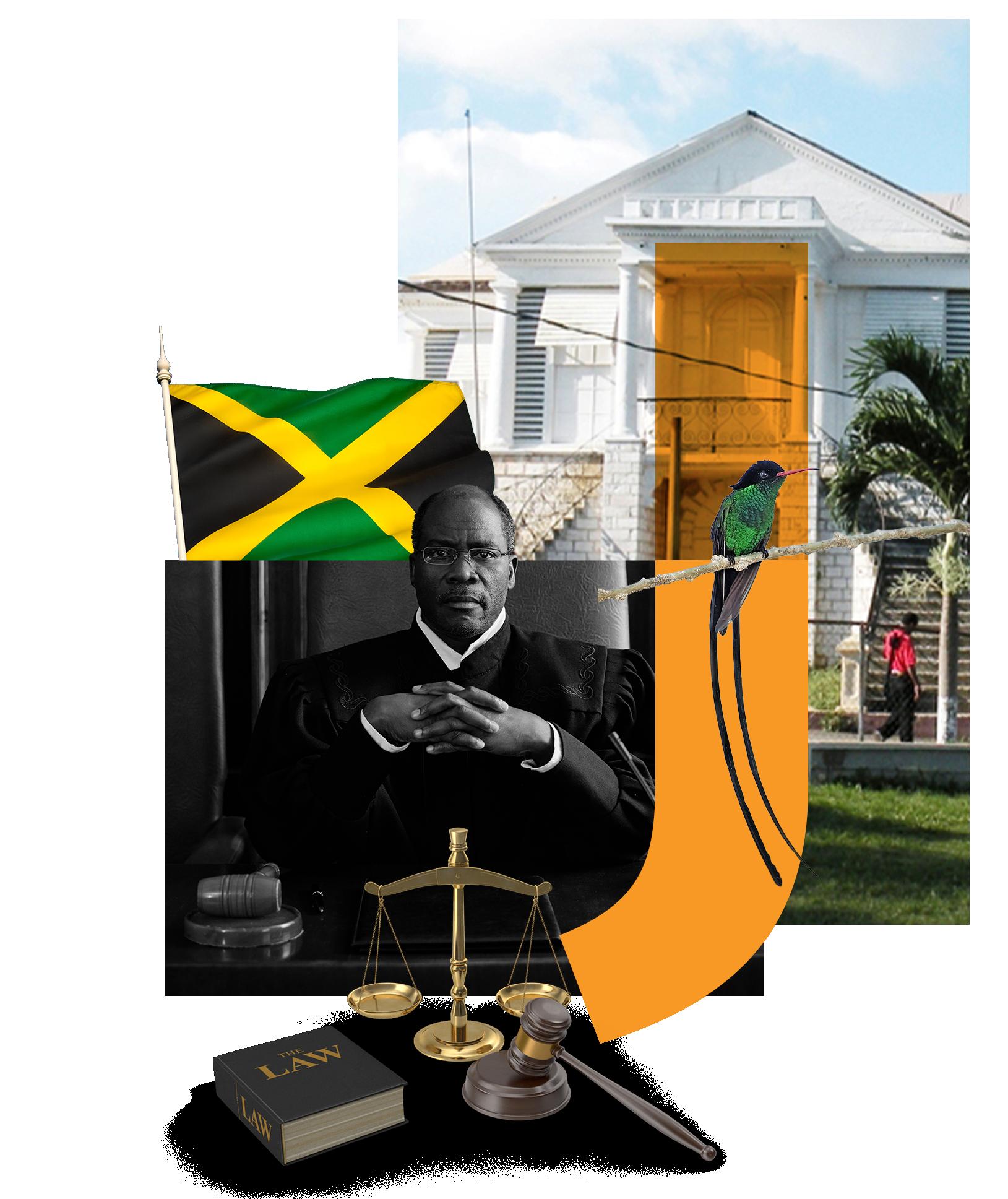
Justice demands more than laws.
It requires an environment that upholds the dignity of all who serve and seek it. We are committed to upgrading and expanding the physical infrastructure of courts across Jamaica to ensure they are safe, accessible, and adequately equipped. Judges must have secure and functional chambers, court staff must work in conditions that support efficiency and well-being, and litigants, especially those in rural and underserved communities, deserve facilities that reflect the seriousness of the matters being adjudicated.
We will pursue constitutional amendments through a transparent and participatory process that engages all stakeholders from the ground up. This includes:
Engaging with civil society groups, the churches, the business sector, trade unions and other nongovernmental actors in the design and roll out of the consultation process.
Hosting public forums for Jamaicans to debate and recommend constitutional changes.
Implementing school and community outreach programmes.
Launching broad public education and awareness campaigns.
Key reforms include:
Replacing the British monarch with a Jamaican President chosen by and accountable to the people.
Making the Caribbean Court of Justice Jamaica’s final appellate court, replacing the United Kingdom Privy Council and ensuring access to justice at the highest level for all Jamaicans.
Strengthening parliamentary accountability through impeachment and recall procedures, and having committees chaired by Opposition representatives.
Consideration of fixed election dates and term limits.
Expanding the Senate to broaden representation to include the Diaspora, Persons with Disabilities, and the Rastafari and Maroon communities.
We will also prioritise legal changes that reflect our identity and deepen justice:
Recognising the Jamaican language as an essential part of our national identity.
Protecting historically marginalised groups, particularly people of African descent, through:
• A national ban on hair discrimination
• A reparations advocacy framework grounded in international law
• Legal protection of ancestral spaces and cultural practices
• Full recognition of Rastafari as an indigenous religion with associated rights
• Reaching an accord with Maroon communities to give modern recognition to their ancestral Treaty rights
Advancing gender equity, protection of the elderly, and the rights of persons with disabilities
Implementing a Progressive Beach Access Policy by reviewing the Beach Control Act to guarantee public access while balancing tourism and private use
Launching a Ganja Economic Empowerment Policy specifically for the Rastafari community
Joining the International Criminal Court to reinforce Jamaica’s commitment to global justice
Expand legal aid services to include civil and constitutional matters, ensuring that justice is not reserved for the wealthy.
Complete the review of the Domestic Violence Act and implement the recommendations to hold abusers accountable, including parish facilities to provide places of safety and support for victims. Enact a Basic Financial Services Law to establish minimum service standards and improve access to banking services across the country.

Education is the bridge between struggle and opportunity, but too many of our children are being left behind.
Rates of absenteeism are unacceptably high. Many finish primary school unable to read or do basic arithmetic. Rural schools often lack access to the internet, adequate infrastructure, and essential tools. A PNP government will stop patching the cracks in the system and rebuild it from the ground up: from early childhood to tertiary education, with urgency, inclusion, and vision.
Jamaica stands on the edge of a new era: a digital revolution built on artificial intelligence (AI), climate shocks, and global uncertainty. Too many of our people remain trapped in lowskilled, low-wage jobs, with little hope for improvement. Jamaica, time come to act. The time for reports has passed. Real transformation will take bold ideas, national will, and all of us working together. We are ready.
The primary objective of the PNP is to ensure equal access to quality education for all students, regardless of their socioeconomic background. But access is not all. The PNP will pay attention to pedagogy. The reform of the education system requires a national effort. As a government, we will focus on the following:
Every child is expected to be literate and numerate by the end of Grade 6. We will reverse the literacy and numeracy crisis in early childhood and primary schools, with significant investments made to achieve smaller classes, better-trained teachers, and the provision of modern learning materials. We will tackle the serious problem of absenteeism that is a major contributor to academic under-achievement.
Strengthen post-secondary education, technical training, and apprenticeships tied to emerging sectors and local labour needs. Match private sector investments in Training/upskilling with co-financing for on-the-job training and apprenticeships.
Enhance school infrastructure and campus health services, recognizing that learning thrives when children are well-nourished, healthy, and secure.
Invest in youth civic programmes, the creative arts, and sports to nurture well-rounded citizens, reduce drop-out rates, and enhance personal development.
Invest in dialogue and partnerships with all major stakeholders in the education enterprise, educators, parents, community groups, religious institutions, students, investors, service providers, past students, researchers, and public bodies.
I. implementing the R.I.D.E. programme to subsidise student travel at $10,000 a month for 20,000 primary and secondary students (based on assessed need), with the intention of increasing this as fiscal resources expand;
II. setting up a proper school bus system; and
III. providing one hot meal daily for all needy primary and secondary students under the E.A.S.E. programme;
We will ensure:
Every child can read, write, do basic arithmetic and reason by age 12.
Every youth can access training, entrepreneurship, or tertiary education opportunities by the age of 18.
Every adult has a pathway to upskilling and employment, regardless of their location.
Reintroduce structured early childhood screening from age 3 to identify special needs early, and expand programmes to address those needs via a model that prioritises inclusive school participation.
Expand access by partnering with churches and communities to host early stimulation and basic education programmes.
Introduce the “First 1,000 Days” initiative focusing on brain development, parental guidance, and nutrition.
Create an early childhood teachers’ portal with lesson plans, developmental red flags, and classroom best practices.
Ensure that every child can read and do basic maths by the end of Grade 4.
Provide literacy support through programmes like “Veranda Basics,” “Mommy and Me,” and “Telephone Tutorials”.
Offer remedial support and academic camps for maths and English.
Provide scholarships tied to volunteerism and community service.
Develop night school programmes for adult learners seeking to obtain CSEC passes.
Build modern vocational labs in all high schools, leading to NVQ-J certification (Levels 2-4).
Host career fairs and certification expos in each parish.
Facilitate HEART/NSTA training in key sectors like construction, agriculture, culinary arts and AI applications.
Ensure each household has at least one member with a tertiary degree or Level 4 HEART/NSTA certification.
Expand the number of government-funded spaces in tertiary institutions, and provide needs-based grants.
Establish a special student loan amnesty programme to allow students who are now in default to bring their loans current without incurring penalties and interest on arrears.
Cap loan payments for borrowers from the Students’ Loan Bureau at a manageable percentage of his or her income. During periods of unemployment, we will suspend loan payments and add them to the back end of the loan, without penalties.
Establish the “First in Family” programme of full scholarships for the first person in a family to attend university/college.
Establish public-private partnerships for internship placements and graduate employment opportunities.

“The primary objective of the PNP is to ensure equal access to quality education for all students, regardless of their socioeconomic background.”
21st-Century Curriculum: Embed Jamaican culture and identity, financial and digital literacy, critical thinking, AI Learning, emotional intelligence, entrepreneurship, and sustainability in all curricula.
Culture and Creativity in the Curriculum: Recognise Jamaican Patois as a cultural language, with English taught as a second language (ESL) where needed to achieve mastery in English.
Build two Creative and Performing Arts High Schools (Kingston and Montego Bay).
Significantly expand music, visual arts, dance, drama, and storytelling in every primary school.
Restore civics and embed the teachings of the Rt. Excellent Marcus Mosiah Garvey in the national curriculum.
Recognising that central to the education process are teachers and the importance of retaining our teachers, the PNP government will pay special attention to them by:
Ensuring teachers receive student debt reductions and motor vehicle concessions at levels that increase with their years of service in the profession.
Ensuring teachers benefit from enhanced access
to NHT loans and are given priority in housing allocations in NHT-financed schemes.
Negotiating package deals to provide teachers with free internet service as a tool of their trade.
Providing enhanced benefits for those who teach in underserved areas.
Developing a system of national recognition for teachers that makes it possible for educators to do further studies or conduct research.
Providing digital and technology training and tools.
Retraining and upskilling teachers, especially in literacy and numeracy, with new curricula and classroom support tools.
Modernise HEART/NSTA to focus on digital services, AI applications, animation, entrepreneurship skills, elder care, construction, renewable energy, and agro-processing.
Build modern vocational labs in community colleges, leading to NVQ-J certification (Levels 2-4).
Establish the “Constituency Senate” to meet biannually with school leaders, parents, and
community representatives.
Promote a culture of volunteerism in education among church groups, alumni networks, and civic clubs.
Implement the Rural Initiative for Delivering Education (R.I.D.E.) subsidised school transport for primary and secondary students outside JUTC zones.
Partner with transport operators and schools to utilise a digital pass system for enhanced transparency and reliability.
Introduce the E.A.S.E. (Ensuring Adequate Sustenance for Education) Programme to guarantee at least one nutritious lunch per day at primary and secondary schools for all students who need it.
Establish school-based mental health units across all regions with trained guidance officers.
Provide resources to place an emphasis on the diagnosis of learning disabilities and strengthen shadow support and other measures to support the education of children with special needs and their families.
Remove taxes on laptops and tablets for students and teachers.
Ensure broadband internet connectivity in every community centre and school campus.
The PNP is committed to building a Jamaican education system that is globally competitive, culturally grounded, and economically relevant, preparing every citizen not just to get a job, but to lead, create, and shape the future. Education is not a privilege. It is a human right, and one of our most potent tools for national transformation and development.


A modern economy requires a strong and reliable foundation of energy, transport, water, and communication systems. Jamaica’s development depends on our ability to upgrade these essential services to meet the demands of our people, support economic growth, and build resilience to climate change. The PNP will lead this transformation with bold planning, targeted investment, and a commitment to equity and sustainability. No Jamaican should be left behind due to inadequate infrastructure.
Energy affects every sector of the economy. High energy costs in Jamaica reduce productivity, hinder development, and place a burden on citizens. A PNP government will work to lower energy costs, increase access, and promote clean and efficient energy use.
Prioritise public and private investment in clean, accessible power.
Accelerate the transition to renewable energy with universal access, including community-owned and small-scale micro-grid systems.
Renegotiate the licence with JPSCo to ensure the protection of the public interest in substantially lowering electricity costs to consumers and businesses, strengthening
consumer protection, and accelerating the transition to renewable energy.
Launch an electricity empowerment programme to help low-income households regularise their consumption, with support for solar system installations.
Remove taxes and duties on clean energy equipment for households and MSMEs.
Create green energy job programmes, especially for youth, in solar installation, battery systems, and energy audits.
Develop and enforce energy efficiency standards for public buildings, schools, and hospitals.
Update the Electricity Act to:
• Allow Special Economic Zones to generate and distribute electricity.
• Expand licensing for net billing and wheeling.
• Strengthen consumer protection provisions.
Water is life. It impacts health, food security, economic growth, and environmental stability. The PNP believes access to clean water is a right, not a privilege.
Ensure every Jamaican household has access to clean water by 2030.
Create a national map of water-insecure communities and publish a public delivery plan with clear timelines and milestones.
Invest in new pipelines, pumps, and storage tanks to reduce chronic water lock-offs.
Prioritise climate-resilient rural water systems, including rainwater harvesting and solar-powered purification.
Expand public access to potable water in droughtprone areas using community-based mini-grids and bulk storage.
Audit and upgrade leaking infrastructure to reduce the 40 percent of piped water lost before reaching households.
Introduce tiered pricing and subsidies to protect the most vulnerable.
An efficient transport system is essential for access, equity, commerce, and mobility. Jamaica must end the isolation of rural and underserved communities with a connected, maintained, and modern road network.
Rehabilitate and maintain roads, prioritizing interior roads, community roads and farm roads.
Expand and modernise farm-to-market roads to unlock agricultural production.
Create a National Road Management System that includes climate risk mapping.
Reintroduce the Lengthman system for drain cleaning and roadside maintenance, using community contractors.
Promote local contracting for infrastructure development to enhance community employment opportunities and promote local economic growth.
Implement a national drainage programme using an expert-verified list of urgent areas.
Establish a ten-year road maintenance plan with secured financing.
Invest in safe public transport systems, including rural minibus services and integrated urban routes.
Reform the Transport Authority to focus on sector regulation, data gathering, and legislative guidance.
Broadband and Digital Infrastructure: Bridging the Digital Divide
In today’s world, access to the internet is a basic necessity. Digital infrastructure must be extended to every community to unlock opportunities in education, business, and healthcare.
Establish a Department for Rural Broadband Access to drive the expansion of affordable and reliable broadband internet to underserved areas.
Equip all community centres with free WiFi to support education, telemedicine, and innovation.
Partner with telecom providers to expand broadband access, with incentives for reaching low-income and rural areas.
Implement a Universal Service Access Plan to ensure all Jamaicans have access to digital tools and training.
Launch digital literacy campaigns for youth, seniors, and small business owners.

Agriculture must be at the centre of Jamaica’s journey toward economic independence, food security and rural transformation. The People’s National Party is committed to building a modern and resilient agricultural sector that feeds our people, empowers our farmers, and creates real opportunity in communities across the country. We will invest in innovation, expand access to land and water, support youth in getting into agriculture, 12 and ensure that Jamaican-grown food takes priority on every table. This is not just about farming. It is about sovereignty, sustainability, and the future of our nation.
Establish the Agricultural Development Fund to provide timely and transparent support for land preparation, farming inputs, irrigation, storage, and marketing.
Launch a new National Irrigation Plan to improve access to water for small farmers and key crops.
Provide secure and long-term leases on idle government lands to youth and community groups for productive farming.
Expand Farmers’ Markets and Rural Aggregation Centres with installations of cold storage to reduce post-harvest losses and strengthen food distribution.
Strengthen farmers’ cooperatives and support the development of community-based processing centres across parishes.
Reduce the national food import bill by 25% over the next five years.
Modernise the fisheries sector to increase productivity, sustainability, and market competitiveness.
Expand HEART and NSTA training in modern farming, agro-processing, and agri-business for youth island-wide.
Partner with schools, youth clubs, and 4H groups to support school gardens, entrepreneurship challenges, and Agri Youth hubs
Offer scholarships for students pursuing agricultural science and technology at UWI, CASE, and vocational institutions.
Establish a Farm Worker to Farmer Transition Programme to support returning workers with land, training, and a start-up grants.
Promote climate-smart farming techniques, including greenhouse technology, drip irrigation, and composting.
Create a SMART Programme (Sustainable Methods in Agriculture Resilience Training) to equip thousands of farmers with climate-resilient skills.
Provide affordable insurance and risk management tools to shield farmers from droughts, floods, and hurricanes.
Partner with local universities to expand research into drought-resistant crops and sustainable methods of pest control

“Agriculture must be at the centre of Jamaica’s journey toward economic independence, food security and rural transformation.”
Enforce a National School Feeding Policy that prioritises locally grown food from Jamaican farmers and fishers.
Support backyard gardens and urban farming through grants, starter kits, and public education campaigns.
Launch a ‘Grow What We Eat, Eat What We Grow’ campaign, backed by a national curriculum in schools.
Strengthen border protection and food safety labs to prevent illegal imports and ensure consumer safety.
Establish a transparent and fair system for allocating permits for food imports in times of shortage, prioritizing organizations that represent or support farmers.
Establish Agricultural Economic Zones focused on value-added products such as nutraceuticals, sauces, teas, and canned produce.
Expand access to low-interest loans through credit unions and microfinance providers for small and medium-scale farmers.
Attract private investment in processing facilities, packaging plants, and marketing services to grow domestic and export markets.
Use geospatial mapping, mobile technology, and artificial intelligence to connect farmers to markets, weather alerts, and training resources.

Sixty-three years after political independence, Jamaica must build an economy that goes beyond extraction. Our bauxite reserves will eventually be depleted. Tourism alone is not enough, as it is vulnerable to natural disasters and external shocks. We must create a diverse and innovative economy rooted in the talents of our people: creative, adaptable, and resilient. The People’s National Party will lead Jamaica into a new era of economic transformation by broadening ownership, strengthening traditional industries, and building the foundations of a future-ready economy.
Accelerate GDP growth while maintaining fiscal targets, low inflation and macroeconomic stability.
Reform the tax and incentive system to support economic transformation.
Strengthen small and medium businesses with training, financing, and infrastructure.
Modernise agriculture to increase productivity, incomes, and food security.
Expand logistics and industrial integration for trade and export growth.
Build stronger global partnerships to attract investment and promote climate resilience.
Develop technology hubs, creative incubators, and research funding.
Promote green growth through renewable energy,
eco-tourism, and carbon reduction.
Expand the creative economy with structured support and funding.
Revitalise the Scientific Research Council to drive innovation in food and product development.
Position Jamaica as a global trade and logistics hub linking the Americas to the world.
Repositioning for a New Global Economic Reality
Jamaica must meet the demands of the new global economy with clear intent and bold action.
The PNP will drive:
A modern industrial policy focused on productivity and value-added industries.
Digital infrastructure that promotes inclusion and innovation.
A platform to mobilise capital and strengthen entrepreneurship.
A state-enabled strategy for climate resilience and digital equity.
The PNP believes technological sovereignty is essential to true independence. Jamaica must be able to innovate, govern, and grow using homegrown knowledge and global relevance.
Increase public investment in research and development across climate-smart agriculture, marine science, cannabis, drone technology, and digital manufacturing
Establish Tech Innovation Zones in Montego Bay, Kingston, Mandeville, and Port Antonio
Create a National Artificial Intelligence and Ethics Commission
Promote AI and data use in health, logistics, education, and farming with a focus on gender and youth
Launch a National Innovation Fund to support inventors, researchers, and entrepreneurs
Reform secondary and tertiary education to promote technology, entrepreneurship, and critical thinking
Protect local creatives in music, film, and education, and expand digital platforms for Jamaican content
The Fourth Industrial Revolution is reshaping the world through automation, artificial intelligence, and digital technologies. Jamaica must embrace this change with strategic intent.
Jamaica 4.0 means:
A knowledge-based economy built on innovation and inclusion
Global competitiveness and local ownership
Resilient infrastructure and workforce development
Stronger global trade linkages and supply chains
Logistics
Establish an Implementation Advisory Committee to modernise the Growth Inducement Strategy
Create a National Supply Chain and Logistics Council
Modernise the Global Logistics Hub Initiative to boost Jamaica’s role in regional and global trade
Develop a strategic logistics infrastructure plan, including SEZ and spatial planning
Build industry-specific clusters in high tech, pharmaceuticals, media, sports, agro industry, and logistics
Generate 100,000 direct and 400,000 indirect good-quality jobs
Invest in smart logistics, modern ports, and transport networks
Promote near-port industrial parks and digital trade platforms
Implement the 2024 Customs Act with supporting regulations
Improve trade facilitation by simplifying customs and reducing red tape
Modernise the foreign trade policy to increase Jamaica’s competitiveness
Negotiate trade agreements with key partners, including Africa, CARICOM, and the Americas
Strengthen Jamaican businesses to meet international standards
Promote digital trade and intellectual property protection
Encourage export diversification in products, markets, and services
The PNP will adopt a forward-looking industrial policy that drives reindustrialisation, technology, and sustainable development.
Integrate Industry 4.0 tools such as artificial intelligence, smart manufacturing, and clean production
Partner with universities and global institutions for research and innovation
Support small businesses with access to capital, training, and technology
Encourage circular economy practices to support sustainable growth
Promote local supply chains and regional value networks
Launch the Jamaica Manufacturing Incentive Programme
Building a Strong Country Brand and Investment Climate
Launch a global investment campaign highlighting Jamaica as a destination for innovation and connectivity
Attract investment in digital services, clean energy, advanced manufacturing, and logistics
Expand support for public and private sector partnerships
Build institutional capacity to deliver efficient and transparent investment services
Partner with HEART, IWED, UWI, UTech, and other institutions to train workers for future jobs
Support women, youth, and MSMEs through inclusive policies and programmes
Strengthen institutions and promote deep stakeholder engagement
Create a Ministry of Trade, Industry, Investment, and Global Logistics under the Jamaica 4.0 strategy to drive implementation
Transforming MSMEs and the Informal Economy
Many Jamaicans survive through small, self-managed businesses that operate outside of the formal economy. These include street vendors, mechanics, dressmakers, barbers, hairdressers, and corner shop owners. For too long, they have been excluded from mainstream opportunities. The People’s National Party will transform this survival economy into a platform for sustainable livelihoods, empowering everyday Jamaicans to grow their businesses, access credit, and build generational wealth. Our mission is to build an economy that values and supports every micro business and every community entrepreneur.
Establish a MSME Collateral Insurance Facility to improve access to credit for small business owners who lack traditional collateral.
Digitise the informal economy by supporting mobile money, digital records, and access to government services.
Develop a Business Certification Programme to assist small enterprises in qualifying for financing, contracts, and incentives.
Offer training, mentorship, and market access support to micro and small entrepreneurs
Provide incentives for informal businesses to formalise and simplify the processes of formalization
Create business districts as dedicated zones for small traders, artisans, and service providers in town centres.
Work with commercial banks, credit unions and microfinance institutions to develop tailored loan products for the informal sector
Promote e-commerce and digital entrepreneurship through training, marketing support, and logistics solutions.
Establish regional MSME hubs that provide shared equipment, co-working spaces, and product development labs.
Reform procurement policies to ensure small businesses can bid for public contracts
Partner with community colleges and vocational centres to provide business literacy and technical training
Expand mobile business clinics and business registration drives in underserved communities.
Tourism remains one of Jamaica’s most significant sources of employment and foreign exchange. Over
170,000 Jamaicans work directly in the sector, yet Jamaican do not enjoy the benefits of the industry as they should. The People’s National Party will lead 18 the transformation of tourism into a people-centred industry, one that empowers workers, respects communities, preserves the environment, and delivers long-term value to the Jamaican economy. Our vision is a tourism model that reflects equity, resilience, and cultural pride.
Advocate for fair and living wages across the sector through updated minimum standards across the industry.
Remove tax from tips, gratuity and commissions earned by tourism workers, subject to anti-abuse provisions.
Expand social protections such as pensions and health insurance for workers.
Eliminate exploitative contract work arrangements in the tourism industry
Reinvesting Tourism Earnings into Communities and Infrastructure
Allocate a portion of tourism tax revenue for local
infrastructure and environmental renewal in key towns like Montego Bay, Negril, and Ocho Rios
Build stronger links between hotels and host communities through mandatory local sourcing and partnerships
Expand support for community tourism, including craft vendors, local entertainers, food producers, and artisans
Cultural Preservation and Heritage
Make cultural heritage a central part of the tourism product
Support creative industries, youth culture, and traditional knowledge as economic assets
Fund projects that preserve Jamaica’s heritage sites and promote storytelling, festivals, and art
Broaden Jamaica’s tourism offerings to include health, wellness, sports, and diaspora tourism.
Strengthen airline partnerships and destination marketing strategies
Promote inclusive tourism zones that cater to multiple income levels and local ownership

Implement mandatory environmental impact assessments for significant tourism developments
Provide incentives for eco-friendly hotels and green certification
Set national carbon reduction standards for cruise lines and hotel chains
Protect coastal ecosystems and natural resources as part of sustainable tourism planning
Land Access and Housing for Tourism Workers
Expand land titling and housing opportunities in tourism centres for industry workers.
Prioritise affordable housing development for frontline staff in high tourism zones Ensure workers live with dignity, close to where they work, and thrive
Strengthening Local Ownership and SME Participation
Increase the share of Jamaican ownership across all parts of the tourism value chain
Provide financing and business development support for transport operators, hospitality
providers, attractions, and digital platforms
Simplify licensing and reduce bureaucracy to encourage small business participation
Enact policies that ensure Jamaican entrepreneurs can scale up and compete
Jamaica’s cultural identity is one of our greatest global assets. From reggae to fashion, theatre to dance, storytelling to design, our creative industries embody the spirit, voice, and vision of the Jamaican people. The global creative economy is valued at over three trillion U.S. dollars. It is time for Jamaica to claim a larger share. The People’s National Party believes the creative sector must be treated as a serious driver of economic growth, job creation, and innovation. We plan to empower creators, protect their work, and build the infrastructure to take Jamaican culture to the world.
Establish a $1 Billion Creative Economy Fund to support business development, content creation, training, and community-based arts.
Establish a Creative Industry Park and Music Heritage Museum in Trench Town to honour icons and nurture talent.
Expand access to funding for micro, small, and medium creative enterprises across all regions.
Improve small content development studios and community venues across Jamaica.
Create internship and mentorship opportunities in creative sectors.
Provide training for freelancers in business management, production, and copyright law
Retool the Creative Production and Training Centre and the Media Technology Institute to deliver cutting-edge training in film, animation, music, and audiovisual production.
Expand the cultural curriculum from early childhood to adult education, including through libraries and the Institute of Jamaica’s Junior Centre programmes.
Establish business development services through Jamaica Creative to support investment readiness, training, marketing, and institutional support.
Implement a national Business Certification Programme for creatives to access financing and public procurement.
Revise the tools of trade exemption policy to serve creatives better.
Establish Special Entertainment Zones for events of all sizes, with proper community consultation.
Streamline the process of getting entertainment licenses through a single national regulatory system.
Reinstate and empower the National Cultural & Creative Industries Commission to oversee policy and strategy.
Conduct an audit of government agencies with overlapping creative mandates to remove duplication and improve efficiency.
Revisit procurement standards to ensure transparency and fairness in government-funded creative projects, such as the Grand Gala.
Encourage the formation of professional associations, guilds, and cooperatives across the creative sub-sectors
Repatriate important Jamaican artefacts held abroad and modernise the National Gallery and museums.
Reinstate the Cultural Passport programme to help students and young people engage with
museums, galleries, and heritage sites.
Collaborate with the Ministry of Tourism to reinstate and promote community festivals.
Ensure cultural industries are central to Jamaica’s tourism identity and export development.
Leverage our national brand to position Jamaican culture as a premium offering in the global creative economy.
Confer the national honour of National Hero on the Hon. Robert Nesta Marley and the Hon. Louise Bennett Coverley, in recognition of their enduring cultural legacies and contributions to nation-building.

Jamaica is a global sporting powerhouse. From the Olympic track to the football field, our athletes inspire national pride and international respect. But sports is more than competition. It is a tool for youth development, community building, and economic opportunity. The People’s National Party is committed to transforming sports into a fully resourced, fully respected pillar of national development. We will invest in athletes, build world-class facilities, and create the legal and institutional framework to take sports in Jamaica to the next level.
Establish a standalone Ministry of Sports to provide focused leadership and funding, ensuring a dedicated approach to sports development.
Develop a National Sports Strategic Plan in partnership with clubs and sporting associations.
Provide tax exemptions on sports equipment and streamline the approval process for sports projects.
Establish the National Sports Council in law to lead national policy, standards, and oversight.
Rationalise and align the various public bodies involved in sports, including the Institute of Sports, SDC, ISSA, JADCO, SDF, and Independence Park Limited.
Review and modernise the National Sport Policy to reflect current realities and future ambitions.
Build modern sports complexes as proposed in the National Sports Strategic Plan.
Upgrade community fields and high school infrastructure across parishes.
Support grassroots and youth sports as a pathway for national and international competition.
Encourage private sector investment in sports through public-private partnerships.
Establish a National Sports Tribunal to hear and resolve disputes between associations, to set governance standards and manage governance issues, and set codes of conduct.
Promote safe sports policies and systems to protect athletes and preserve the integrity of the sport.
Encourage the formation of an Association of National Sports Governing Bodies to represent development needs and align national programmes.
Strengthen bilateral and multilateral sports cooperation agreements for knowledge exchange and investment.
Promote Jamaica as a destination for sports tourism, training camps, and international competitions.
Partner with diaspora networks and global sporting bodies to boost funding, technical support, and access.
Launch a National Programme of Sporting Excellence to identify and nurture talent from early childhood through elite levels.
Provide targeted scholarships, coaching certifications, and academic support for student athletes.
Encourage the integration of sports science and sports medicine across clubs and national programmes.
Expand opportunities for careers in sports management, officiating, and administration.

Modern Jamaica was born out of the struggles of working people. From the uprisings of 1938 to the formation of trade unions and cooperatives, workers have built the foundation of our democracy and our economy. Yet too many Jamaicans still work in poor conditions, without dignity, protection, or opportunity. The People’s National Party believes that every Jamaican deserves fairness at work, a voice in the economy, and a pathway to prosperity. We will restore the power of labour, protect workers’ rights, and build a just and inclusive society.
End the widespread abuse of contract work arrangements by enacting legislation to secure decent working conditions for all.
Review and modernise Jamaica’s labour laws to reflect today’s realities and protect workers across all sectors.
Pass the Occupational Health and Safety Act to ensure safe, healthy, and respectful working environments.
Launch the Liveable Wage Commission to review income standards and recommend a fair national minimum wage.
Establish Joint Industrial Councils for major sectors, including tourism, security, and outsourcing, to address industry-wide concerns.
Support tripartite dialogue among workers, employers, and the government to solve labour disputes
Promote strong, democratic trade unions as a central pillar of workplace justice and national development.
Remove tax from overtime payments for workers whose total earnings do not exceed $6 million per year, subject to anti-abuse provisions.
Increase the existing tax exemptions on pension income
Expand the Employee Share Ownership Programme to promote economic democracy and worker ownership.
Increase the Employment Tax Credit cap to forty percent to incentivise businesses to hire more people and invest in training.
Standards and Global
Ratify all outstanding International Labour Organisation conventions to bring Jamaica in line with global labour standards.
Strengthen labour inspection, compliance, and enforcement systems to uphold workplace rights.
Promote ethical employment practices and gender equity across the public and private sectors.
Support policies for remote work, flexible schedules, and platform-based employment
Protect informal workers by providing them with access to benefits, training, and pathways to formalisation.
Promote lifelong learning and upskilling to prepare Jamaican workers for the demands of the future economy.

Health
The People’s National Party believes that access to quality health care is a fundamental human right. We are committed to building a system that delivers care with dignity, invests in our health workers, and meets the needs of all Jamaicans—rural and urban, rich and poor, young and old. A future PNP government will make the health of our people a national priority. We will modernise the health system to make it responsive to the needs of the people, improve mental health services, empower frontline staff, and invest in technology and innovation to ensure every citizen receives the care they need.
Launch a national maternal and child health programme to reduce mortality rates.
Establish high-risk antenatal clinics in all health districts.
Expand the neonatal intensive care unit at Victoria Jubilee Hospital and create one at Bustamante Children’s Hospital.
Reform emergency services with an Adopt an Ambulance programme supported by the private sector and civic groups.
Train more paramedics and create a national trauma response system.
Create Centres of Excellence for day surgeries to reduce waiting times and backlogs.
Establish 24-hour Urgent Care Centres to ease pressure on hospital emergency rooms.
Invest in AI-driven health systems to improve diagnosis and telemedicine.
Ensure every parish hospital has radiology and CT scan capacity.
Expand the radiology department at Bustamante Children’s Hospital.
Strengthen mental health services by training more professionals, creating mobile emergency teams, and establishing halfway houses.
Build at least one mobile emergency response team per parish.
Increase the number of blood collection centres.
Create an independent and transparent system to manage patient complaints.
Institutionalise research and development in health to strengthen local solutions and global impact.

Continuously review staffing to align with demand.
Provide better housing support for health care personnel through the National Housing Trust.
Offer graduated concessionary duty rates on motor vehicles and student loan forgiveness based on years of service in the public health system.
Increase benefits and offer student loan forgiveness for those working in underserved areas, and provide scholarship opportunities for further learning.
Expand services funded by the National Health Fund, including free surgical implants and screenings for persons sixty years and older.
Strengthen project management to ensure efficient use of public health resources.
Reform procurement to eliminate waste and ensure health dollars improve patient care.
Standardise procurement systems across the health sector for better efficiency.
Recognize the immense value of philanthropic Diaspora support to the health system by streamlining processes to reduce costs and bureaucratic hurdles.
Review the structure, mandate and operations of the Regional Health Authorities and reform them to the extent that they are not delivering more efficient and effective health care.
Use digital technology for records management and to reduce administrative burdens on care workers.
Create Community Health Committees for greater local oversight and accountability.
Transform Health Centres into community-based care coordination hubs.
1.Social Protection
Go beyond welfare and build a caring system rooted in universal access.
The People’s National Party believes that no one should be left behind. Whether by age, ability, gender, or geography, every Jamaican deserves a chance to thrive. True social protection is not just about handouts; it is about dignity, opportunity, and equity. Our vision is a Jamaica where families are strong, communities are supported, and everyone has a fair shot at a better life. Through coordinated policies and people-centred investment, we will build a caring state that uplifts every citizen.
Eliminate systemic exclusion by guaranteeing services and opportunities to all.
2.Social Mobility
Create pathways out of generational poverty through education, training, and entrepreneurship.
Promote a family-centred development model that nurtures potential and economic independence.
3.Social Cohesion
Restore core values and justice within communities.
Strengthen community-level engagement through restorative justice and family court reform.
4.Social Inclusion
Actively integrate persons with disabilities, the elderly, at-risk youth, and women.
Promote gender equity and equal access to all aspects of national life.
Invest two billion dollars in year one, then three billion annually to create a coordinated, family-centred social work system.
Hire and consolidate a national cadre of social workers across ministries.
Support families across three generations with integrated interventions
Expand PATH to include stronger disability and mental health screening, prioritize persons with disabilities in access to PATH benefits, and include family caregivers for persons with disabilities in the PATH support system.
Establish safe support centres in every parish for survivors of domestic and gender-based violence.
Reform the Family Court to promote co-parenting and restorative justice.
Introduce parenting support programmes in schools and communities.
Create after-school programmes with life skills, mentorship, and care.
Reform the Child Protection and Family Services Agency to ensure proper care for children in state custody.
Provide job training, entrepreneurship support, and gang prevention through the Peace Management Initiative.
Expand restorative justice and community conflict resolution councils as part of a holistic national crime prevention programme.
The People’s National Party will invest $5 billion over five years to support 100,000 seniors across Jamaica with a national framework of care, inclusion, and protection. This plan recognises the value of our elders and ensures that they age with dignity, safety, and connection.
We will expand and strengthen localised programmes to support daily needs and wellbeing for seniors. Services will include:
Nutritious meal preparation
Assistance with personal care and hygiene
Regular wellness checks by trained personnel
Accessible and reliable transportation services
These services will be community-based, peoplepowered, and delivered through strong partnerships with churches and other local organisations.
The PNP recognizes the deep-rooted influence of churches and other faith-based organizations in Jamaica communities, and their proven ability to drive social upliftment.
We will establish a Faith-Based Community Transformation Fund (FBCTF) of $1 Billion (replenished annually) to empower local churches and other faithbased organizations across Jamaica to expand their community-driven programmes that strengthen families, support education, foster economic resilience, and promote social cohesion, in a structured, accountable
and impactful manner. Contributions to the FBCTF by private sector firms and individuals will be incentivized by tax-deductible status.
The FBCTF will be administered by the Jamaica Social Investment Fund (JSIF) or another appropriate public body to ensure transparency, efficiency and proper monitoring and evaluation of these resources, and its annual report (including audited financial statements) will be tabled in Parliament. A dedicated Board of Directors, comprising pastors, other community leaders and appropriately-skilled professionals, will oversee the FBCTF’s governance, ensuring that it remains aligned with the needs of the communities and the objectives of national development.
We will also establish a unit within the Ministry with responsibility for Social Transformation to support the social initiatives run by faith-based and community organizations.
A trained caregiver network will be developed to support families and communities:
Train and compensate community caregivers, including family members who provide full-time support to elderly relatives.
Partner with churches, taxi associations, and community groups to help identify needs and expand outreach and service delivery.
Pass an Elder Care and Protection Act to prevent abuse and safeguard the dignity of older Jamaicans.
To close the digital divide and connect our seniors to the modern world, we will implement a targeted $750 million programme to benefit 25,000 seniors:
Provide digital devices or subsidies to eligible seniors.
Establish 150 Digital Help Desks islandwide.
Train youth volunteers to teach digital coaching to 50,000 seniors.
Launch a nationwide anti-scam and fraud prevention campaign tailored to older Jamaicans, with a focus on online safety and financial protection.
The greatness of a society is measured by how it treats those who are often overlooked. Too many Jamaicans with disabilities continue to face barriers that prevent them from living full and independent lives. The People’s National Party is committed to building a society that values, respects, and includes every person. We will break down the physical, institutional, and cultural obstacles that keep people with disabilities on the margins and create a system where they can thrive.
Create a National Disability Fund funded with $1 Billion and replenished annually to:
Strengthen the funding for the functions of the Jamaican Council for Persons with Disabilities, and support non-profit organisations that work with persons with disabilities.
Fund technology-based solutions for independent living and mobility.
Ensure all public buildings, schools, and facilities are accessible to persons with disabilities.
We will convene a national consultation in year one to design a national disability integration plan with direct input from affected communities, and launch a national campaign to challenge stigma and promote full inclusion in public life.
We will guarantee equal participation in democracy by improving access to voting, education, and employment for people with disabilities.
We will review and strengthen legislation and enforcement to protect the rights of persons with disabilities in all sectors.
One in four Jamaican women between the ages of fifteen and sixty-four will experience intimate partner violence in their lifetime. Despite stronger laws and greater awareness, gender-based violence remains a national emergency. The People’s National Party believes this crisis requires urgent action, bold innovation, and unwavering political will. We will move beyond press releases and promises to implement real, life-saving solutions that protect our women, uplift survivors, and prevent future harm.
Launch a national mobile app to report genderbased violence in real time.
Integrate the app with emergency services and local shelters.
Use geolocation technology to pinpoint incident locations, drawing on WiFi, cell tower, and device data.
Ensure strong privacy protections to safeguard the identity and safety of victims.
Launch a national campaign on rights, protections, and available services.
Embed respect, equality, and gender education into the school curriculum from early childhood to high school.
Train students, teachers, and parents to identify warning signs and respond appropriately.
Promote respectful relationships and challenge harmful gender norms.
Utilize predictive analytics to pinpoint highrisk areas and map hotspots based on factors such as lighting, police presence, and established patterns.
Direct interventions and police patrols in communities with elevated risk.
Partner with community organisations, churches, and schools to strengthen frontline support.
Partner with churches and community organisations to provide temporary shelter for survivors, especially in rural areas.
Expand the number and quality of state-funded shelters and safe spaces.
Ensure availability of counselling, relocation services, and legal support.
Conduct a full review of gender-related laws to ensure enforcement and impact.
Strengthen the prosecution of domestic violence, stalking, cyber harassment, and digital abuse.
Address new threats through legislation, such as smartphone tracking, online stalking, and nonconsensual sharing of private content.
Train police and judiciary to respond with care, sensitivity, and urgency.

Jamaica’s democratic journey began with the fight for the right to vote and self-government. Today, we must go further. Democracy is not only about casting a vote. It is about giving citizens an authentic voice in the decisions that affect their lives. The People’s National Party is committed to participatory democracy, where governance is transparent, inclusive, and accountable. We will modernise our public institutions, return power to communities, and rebuild trust in government by creating a system that delivers for the people.
Amend the Access to Information Act to align with global best practices.
Make public consultations accessible, inclusive, and meaningful.
Accelerate the Public Sector Modernisation Programme to deliver faster and fairer services.
Strengthen the rule of law by improving court efficiency, expanding legal aid, and training prosecutors.
Reform local government planning to include participatory decision-making at the municipal level.
Create a national digital platform to unify services, including health records, land titles, and business registration.
Make all core public services available online with mobile access and real-time tracking.
Provide free WiFi in government offices and community centres across the country.
Introduce digital identification cards with biometric security for seamless access to services.
Strengthen the Public Sector Transformation Unit to lead innovation and reform across ministries.
Build on the constitutional amendment passed in 2015 to guarantee local democracy.
Review the Local Governance Act and Local Government (Financing and Financial Management) Act, and the Local Government (Unified Service and Employment) Act, with a view to making any necessary adjustments followed by full enforcement of their provisions.
Empower Parish Development Committees and Community Development Committees to co-create local plans.
Shift focus from constituency politics to community development by expanding the powers of municipal corporations.
Establish a national People’s Assembly, including diaspora representatives, to review laws and shape policy impacting local communities.
Introduce participatory budgeting and local planning, where citizens help decide spending priorities.
Create stronger accountability measures for local government, linking funding to measurable performance.
Restore the Office of the Political Ombudsman as an independent watchdog, separate from the Electoral Commission of Jamaica.
Ensure the independence and effectiveness of the Integrity Commission to enable it to pursue it statutory mandate without fear or favour, including desirable improvements such as the modification of the “gag clause” to achieve a workable balance between protecting legitimate reputational rights and ensuring timely disclosure in the public interest.
Strengthen the oversight committees in Parliament, including by enacting mechanisms to facilitate the participation of civil society and other non-State actors in the work of these committees.
Modernize the Access to Information Act to
implement simpler processes, shorter timelines and a broader scope, to facilitate the flow of information to the public.
Modernise the legal framework for obtaining permits and licences to ensure efficiency, fairness and transparency.
Increase the monetary jurisdiction of Parish Courts so more Jamaicans can access justice that is affordable and closer to home.
Hold public dialogue on the national Sex Offender Registry to ensure balance between public safety and rehabilitation.
Restore Jamaica’s active participation in CARICOM and regional partnerships, to materialize the economic and social benefits of regional integration and to achieve maximum effectiveness in international relations on matters of mutual interest.
Uphold the principles of cooperation, human rights, self-determination and global equity in international relations.
Engage the Diaspora in constitutional reform and encourage their participation on public boards.
Modernise embassies and consulates to meet the evolving needs of citizens and diplomatic relations.
Evaluate Jamaica’s progress toward the Sustainable Development Goals and strengthen national coordination.
Push for United Nations reform in areas that directly affect countries like Jamaica.
Expand trade, cultural, and economic ties with continental Africa and the Global South.
Prohibit the use of public funds for advertising during election periods, other than where the promotion of critical public services is essential in the public interest.
Establish an Independent Public Sector Advertising Oversight Panel to vet all publicly funded advertising during election periods.
Require transparency through annual disclosure of all public sector advertising budgets and expenditure on advertising campaigns.
Ensure that public servants, not political partyconnected operatives, manage all ministry websites, digital accounts, and archives.
Mandate long-term archiving of all government communications to preserve transparency and institutional memory.
Implement a National Digital Communications Policy to enforce non-partisan, service-oriented use of government platforms.
Create a Government Communications Council to coordinate public information across ministries.
Develop shared infrastructure, including a central content management system and a unified national portal.
Deploy trained Digital Public Information Officers within all ministries.
Digitise the Access to Information (ATI) system for easy online requests and tracking
Review and remove non-disclosure clauses in government contracts that are not demonstrably justified in a free and democratic society.
Empower the ATI Appeal Tribunal to act swiftly and independently.
Finalise the digital broadcasting switchover with fair access and public transparency.
Catalogue and protect all state-owned communication assets and archives.
Invest in mobile-first platforms to reach underserved and rural populations.

Every Jamaican deserves a safe and secure place to call home. Yet today, nearly one in five Jamaicans live in informal settlements, and hundreds of thousands remain locked out of land and home ownership. The housing deficit now stands at 190,000 units. Inequitable land distribution and unaffordable housing continue to fuel poverty, hopelessness, and crime. The People’s National Party is committed to restoring dignity by securing land rights, building affordable homes, and transforming communities. We will build not just houses, but the foundation for a fairer society.
End the annual extraction of $11.4 Billion from the National Housing Trust (NHT), so as to enable the NHT to comprehensively carry out its mandate.
Restore the NHT to its original purpose of financing and building affordable housing for contributors.
Undertake an aggressive programme to build 50,000 affordable houses on public lands across Jamaica not suitable for agriculture over the next 5 years, and exclude the value of land from the price of those homes to make ownership more accessible.
Establish the NHT Rent to Own Programme to help self-employed and informally employed persons (who cannot produce a pay slip to prove their income so as to qualify for a mortgage) to go into possession of the house as a tenant and access mortgages after six months of honouring their rental payments so as to become owners. This Programme will also allow tenants to allocate a portion of the rent towards the deposit on the house, so that over time they can pay down on the house, access a mortgage and move from tenancy to ownership of the house.
Establish a $1 Billion Young Owners Deposit Fund (replenished annually) within NHT to enable persons up to 45 years old to access nonrefundable grants of $500,000 to cover the deposit on the purchase of their first home, once they have contributed for at least two years to the NHT.
Restore reduced interest rates for public sector workers such as teachers, nurses, and police, correctional and military officers.
Provide an interest rate reduction for persons with disabilities.
Grant public sector workers a three-month grace period before mortgage payments begin after purchasing their home, to enable them to furnish it etc.
Apply a preferred forty percent debt service ratio to support public sector workers in qualifying for larger NHT loans.
We will launch the Programme for Orderly Renewal and Transformation of Infrastructure in All Areas (P.O.R.T.I.A), which will:
Complete all unfinished Operation PRIDE schemes across Jamaica, ensuring the infrastructure is in place and titles are issued to the residents.
Embark on the regularization of informal land settlements across Jamaica through organizing the residents, financing the infrastructure and lot sales, issuing titles etc, supported by a robust governance mechanism to ensure transparency and value for money.
Upgrade older housing schemes that are in need of repair, and invest in communities to provide proper sidewalks, green spaces, and effective drainage systems.
Replace zinc fences with concrete walls, and invest in public beautification.
We will allocate 20% of all new social housing built by the Housing Agency of Jamaica to persons with disabilities, utilizing inclusive design principles, and provide housing assistance to those in need through targeted grants and subsidies.
We will partner with churches that own large plots of land to build integrated retirement homes for seniors, with shared revenue models between the churches and the NHT.
The next PNP Government will deliver the most significant transfer of wealth to the people in Jamaican history, putting ownership of government lands in the hands of the people.
We will amend the Limitations of Actions Act to reduce the years required for adverse possession of Crown lands from sixty years to twenty-five years, so that families that have invested in building homes on these lands and have well-established possession will become the titles owners of the land.
Where possession is well-established and persons have been living in homes without yet achieving the threshold of 25 years, we will facilitate their purchase and titling of the land at affordable prices and on concessionary payment terms.
Ensure compliance with the Data Protection Act across the public sector, while ensuring that the Act cannot be manipulated to prevent the release of information the disclosure of which is in the interests of open and transparent governance and the fight against corruption.
Prohibit the political use of state-collected personal data for targeting or surveillance.
Publish clear policies on how the government handles and stores citizen data.
Establish a National Information Integrity Unit to counter disinformation and protect public trust.
Promote media and digital literacy across schools and communities.
Develop a national crisis communication protocol for fast and coordinated messaging.
Facilitate two-way communication through digital town halls, citizen surveys, and public feedback tools.
Create a publicly accessible digital archive of government records, parliamentary debates, and national reports.
Require all public bodies to contribute systematically to this archive
Integrate the Jamaica Archives and Records Department with the Jamaica Information Service for efficiency.
Develop a searchable online portal to assist Jamaicans to access our history and civic records.

the
Jamaica’s future depends on its youth. Yet too many young people face limited access to quality education, decent jobs, affordable housing, and creative opportunities. The People’s National Party is committed to changing that. We will create a system that supports young people at every stage—from learning and training to employment and entrepreneurship, and from selfexpression to leadership. We will build a Jamaica where youth are not just seen but empowered.
Reform the curriculum in public schools to include artificial intelligence, climate science, creative thinking, and entrepreneurship.
Expand HEART training centres across all 14 parishes to deliver certified skills in construction, agriculture, entrepreneurship, logistics, and technology.
Provide scholarships annually to young people studying at the UWI, UTech, and vocational institutions in high-demand sectors.
Launch a national digital literacy programme to train 25,000 youths by 2029.
Launch a National Youth Innovation Fund with $1 Billion (replenished annually) to support youthled tech and creative startups and projects across tech, music, media, and performance.
Fund 5,000 youth-owned businesses over 5 years through start-up grants and low-interest loans.
Establish 14 regional Youth Employment Hubs providing mentorship, job placement, and training.
Partner with the private sector to create 20,000 new jobs for young people in tourism, logistics, agriculture, and the digital economy.
Build creative industry hubs and content studios in urban and rural communities.
Upgrade 200 school and community fields, courts, and sports centres over 4 years.
Expand participation in national youth festivals, theatre programmes, and dance training with an annual reach of 20,000 young people.
Launch a National Sports and Culture Apprenticeship Programme to train young coaches, artists, and managers.
Expand the number of school-based guidance counsellors and mental health professionals.
Establish after-school safe spaces in every constituency, for vulnerable youth.
Distribute digital safety kits for young women and girls, including education on online protection and access to emergency support.
Expand Peace Management Initiative services to 20 high-risk communities, with a focus on youth conflict resolution.
Fund second-chance placements annually for youth in rehabilitation, skills training, and reintegration.
The People’s National Party believes that youth are not just Jamaica’s future, they are Jamaica now. We will open the doors of opportunity wide, invest in talent and resilience, and ensure every young person has a real chance to thrive. No youth must be left behind.

Citizen Safety and Security: Safer, Stronger, Healthier Communities
The People’s National Party believes that the future of Jamaica rests on the safety and vitality of our communities. We envision a country where citizens live without fear, feel connected, and take pride in the places they call home. Our approach treats violence not only as a security issue, but as a public health challenge and a social justice concern. We will reduce violence by investing in prevention, addressing root causes, and strengthening trust between citizens and law enforcement.
From 2016 to the present, Jamaica has lost almost thirteen thousand lives to violent crime, with the annual murder rate averaging 25% higher than under the previous PNP administration for the first 8 years. More Jamaicans have been murdered in the two terms of this JLP administration than in any other two terms in the history of Jamaica. That failure must be acknowledged.
The significant reduction in murders this year marks a welcome shift after many years of misguided policies and reflects the effectiveness of evidence-based, focused policing versus the unconstitutional and ineffective States of Emergency (SOE) promoted by the Holness administration. The elimination of routine SOE use, combined with targeted enforcement and community programmes, validates the PNP’s long-held position. Now, Jamaica can chart a new course, one based on justice, data, and hope.
The PNP will treat violence as a public health issue shaped by poverty, trauma, and exclusion.
Identify risk factors and apply early intervention strategies
Invest in prevention programmes and trauma recovery services
Support victims and communities through counselling and social support
Pair enforcement with programmes that break cycles of retaliation and crime
We will transform policing into a model that prioritises protection and service, rather than occupation.
Expand intelligence-led and problem-oriented policing focused on hotspots and high-risk individuals.
Improve training in human rights, de-escalation, and trauma-informed care
Promote mental health services and career development for law enforcement officers
Build stronger relationships between police and the communities they serve
Crime cannot be addressed by force alone. It must be prevented through opportunity.
Expand school and community-based programmes like the Peace Management Initiative.
Provide mentorship, therapy, and conflict mediation in high-risk communities.
Launch targeted job training and entrepreneurship programmes for youth at risk.
Partner with the private sector to create employment pathways.
Invest in early childhood development and family strengthening initiatives.
Expand vocational training, apprenticeships, and financial literacy.
Support second-chance programmes for young offenders and returning citizens.
The PNP will modernise the tools used to prevent and fight crime.
Use data and social indicators to allocate resources effectively
Expand cybercrime and financial crime units to track and dismantle scamming networks
Extend and maintain the Jamaica Eye surveillance system in priority areas
Develop geographic targeting tools to address violence in real time
We will uphold the rule of law while respecting human rights.
Legislate for court-supervised, time-limited precharge detention for violent suspects backed by credible intelligence.
Focus enforcement on the small number of individuals and locations that drive most of the violent crime in Jamaica.
Use social services and prevention programmes to address systemic causes.
Allow police officers to retire at sixty-five (rather than sixty) if they choose, without losing pension benefits.
Adjust pension formulas to ensure those who
retire at sixty are not disadvantaged.
Guarantee priority firearm licensing for police, soldiers, and correctional officers once certified by their department.
Eliminate the distinction between “killed on duty” and “killed in service.”
Increase death benefits for families of fallen officers from $14 million to $25 million.
The People’s National Party is committed to building safer communities through a balanced approach that combines enforcement, prevention, and social development. Safe communities require more than policing; they also require trust and opportunity.

The People’s National Party believes that actual development must be environmentally sustainable. As a Small Island Developing State, Jamaica faces serious risks from climate change and environmental degradation. Our very survival depends on how we protect our natural resources, prepare for disasters, and build long-term resilience in every community.
Climate change is not a distant threat; it is a pressing reality. It is already affecting every aspect of life, from the health of our people to the loss of coastlines, the destruction of infrastructure, and food and water insecurity. Rural communities, the elderly, women, children, and low-income households are especially vulnerable.
The PNP will place environmental protection at the heart of national development. We will take bold, science-based action to build a greener, stronger, and more secure Jamaica, one where sustainability is not an afterthought but a guiding principle for every ministry and every project.
Mainstream Environmental Protection Across Government
Ensure every policy, plan, and project involving expenditure with the potential to have a material environmental impact includes a mandatory environmental impact review.
Strengthen coordination across all ministries,
departments, and agencies to integrate environmental priorities.
Launch a national public education programme to promote environmental awareness and stewardship among citizens, legislators, and communities.
Advance environmental justice by ensuring vulnerable groups are protected in development decisions.
Ratify the Escazu Agreement to guarantee public participation, access to information, and environmental justice.
Amend the Natural Resources Conservation Authority Act to give NEPA greater autonomy and enforcement authority.
Situate NEPA within a Ministry that does not have responsibility for driving economic growth, thereby reducing the structural conflict of interest in carrying out its mandate.
Establish an independent appeal mechanism for environmental decisions.
Support environmental NGOs and communitybased organisations as partners in climate action.
Invest in environmental data, research, and valuation of natural assets to inform policy.
Replace open dumps with safe, scientifically designed landfills.
Develop a national waste management strategy based on circular economy principles.
Tackle toxic fires, leaching, and illegal dumping to protect water sources and ecosystems.
Introduce island-wide recycling initiatives supported by legislation and private sector partnerships.
Improve stormwater drainage and water conservation infrastructure to address both drought and flooding risks.
Pursue a Debt for Nature Swap that allows Jamaica to restructure its debt while investing in environmental conservation.
Expand participation in global carbon credit markets to generate new revenue for climate action.
Attract climate finance and development assistance by showing strong environmental leadership.
Position Jamaica as a global leader in climate resilience and sustainability among Small Island Developing States
The PNP recognises that the environment is not separate from the economy; it is the foundation of our survival and prosperity. We will transform environmental policy from words into action, ensuring that every Jamaican, now and in the future, can live in a country that is clean, resilient, and sustainable.
Jamaica is at a crossroads. Sixty three years after political independence, we remain a society marked by stark class and colour inequality. To continue down this path is to court disaster, a disaster that will eat away at our social fabric.
Time come now come to change course. Time come now come to build a different Jamaica, one in which all social groups work together to create a nation where there is economic opportunity for all, respect and dignity for all, and a justice system that treats every person the same, no matter who they are or where they live.
Time come now come to reform an apartheid education system that leaves too many students unprepared for the demands of the modern world, unable to make a decent living, and without a deep understanding of our history and rich culture.
Time come now come to feed ourselves, to create the conditions for true food security.
Time come now come for workers to be treated like human beings.
Time come now come for corruption to stop.
Time come now come for we the people to have a regular say over the things that impact our lives, and to hold those we elect accountable.
Time come now come for a better health system that puts the patient first.
Time come now come for every Jamaican who dreams of owning a home to have a real chance to do so.
Time come now come for our creative talent to unleash its full potential upon the world.
Time come now come for Jamaica to be nice for everybody, not just for a few.
Time come now come for a new Jamaica.
Time come now come to vote for
the People’s National Party, the party of change.
